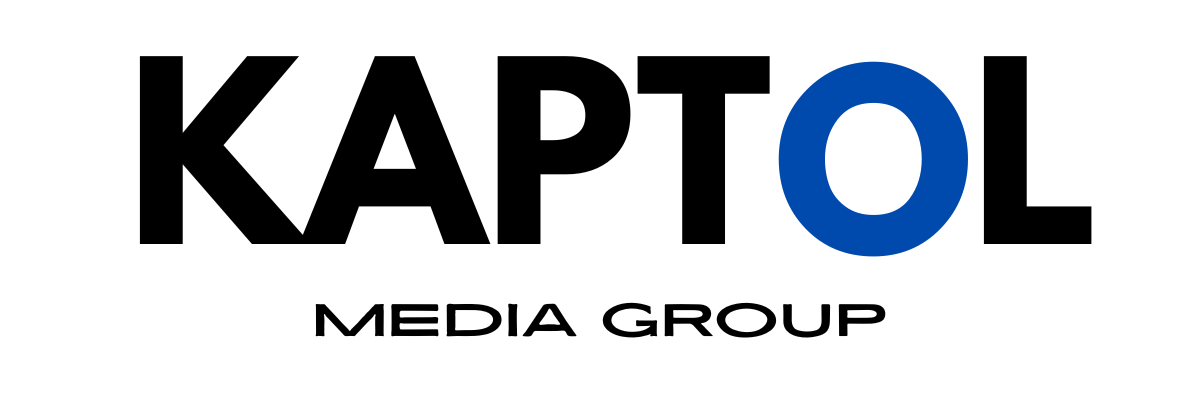
KAPTOL Media is a Shopify Partner
We take a holistic approach to each and every project, pulling out all the stops to ensure that your project runs smoothly and achieves the best results.
eCommerce online business.
What is eCommerce?
eCommerce, short for electronic commerce, is an expansive sector that revolves around the buying and selling of goods and services over the internet. It encompasses a variety of online business activities for products and services, facilitating not just the sales but also the electronic transfer of money and data necessary for completing the transactions. This form of commerce has grown significantly with the rise of the internet and continues to expand as more consumers and businesses move online for their buying and selling needs.
There are several types of eCommerce models that cater to different aspects of the commercial relationship, including:
- Business to Consumer (B2C): This is the most common form of eCommerce and involves businesses selling goods and services directly to consumers through online platforms. Examples include online retailers like Amazon and Walmart, which provide products ranging from books and clothing to electronics directly to individual customers.
- Business to Business (B2B): This model involves transactions between businesses, such as a manufacturer selling to a wholesaler, or a wholesaler selling to a retailer. B2B eCommerce often deals with goods that are needed for the production of other goods, services, or the operational needs of other businesses.
- Consumer to Consumer (C2C): Platforms like eBay and Craigslist enable customers to sell to each other directly. These transactions often involve secondhand goods or personal items that do not require business intermediaries.
- Consumer to Business (C2B): This lesser-known model allows individuals to sell their products or services to companies. An example would be a graphic designer selling their designs to a business for commercial use.
eCommerce also includes various forms of transactional processes such as online payment gateways, supply chain management, internet marketing, and electronic data interchange (EDI), which streamline the efficiency of online transactions.
eBusiness differs from eCommerce in its scope. While eCommerce refers specifically to the transactional processes of buying and selling, eBusiness encompasses all aspects of operating an online business, including not only the commercial transactions but also related activities such as marketing, customer service, and business management. This broader term captures the integrated approach to managing businesses that are either entirely online or use online methods extensively to support their operations.
The distinction between eCommerce and eBusiness highlights the evolution and integration of internet technologies into every aspect of business operations, helping businesses improve efficiency, reach new markets, and optimize their operations.
HISTORY OF ECOMMERCE
The history of eCommerce is a fascinating journey that reflects the evolution of technology, consumer behaviour, and business strategies over the past few decades.
It officially began on August 11, 1994, when a Sting CD was sold over NetMarket, marking the first secure retail transaction on the internet. This event is often cited as the birth of online shopping, illustrating the potential of the internet for commercial transactions and setting the stage for the explosive growth of eCommerce.
Early Days and Technological Foundations:
Before eCommerce became a reality, several key technological innovations set the stage. The creation of the World Wide Web by Tim Berners-Lee in 1989 was crucial, as it provided a user-friendly means of accessing information over the internet. This was complemented by the introduction of browsers like Mosaic and later Netscape, which made the web accessible to the general public.
1990s: The Dawn of Online Retail:
Following the first recorded online sale in 1994, companies began to recognise the potential of the internet as a sales platform. Amazon, founded by Jeff Bezos in 1994, started as an online bookstore but quickly expanded its offerings, aiming to leverage the unique advantages of the internet's reach and availability. eBay, founded in 1995 by Pierre Omidyar, created a platform for consumer-to-consumer transactions, revolutionising how individuals buy and sell goods.
2000s: Expansion and Diversification:
As internet usage grew, so did the range of eCommerce services. The early 2000s saw the proliferation of various online retailers and the expansion of payment options, including the rise of PayPal, which streamlined online transactions. This era also saw the growth of online services beyond simple retail, including travel bookings, financial services, and digital downloads.
Mobile and Social Commerce:
The introduction of smartphones and the subsequent increase in mobile internet access opened new avenues for eCommerce. Mobile commerce (mCommerce) became a significant aspect of the industry, with retailers optimising their websites for mobile devices and later developing dedicated apps. Social media platforms also began integrating eCommerce features, facilitating what is now known as social commerce, where users can shop directly through social media apps.
Current Trends and Future Prospects:
Today, eCommerce is characterised by highly personalised shopping experiences, sophisticated digital marketing strategies, and an ever-growing integration of AI and machine learning technologies. These technologies are used to analyze customer data, optimise supply chains, and enhance customer service. The advent of big data and predictive analytics allows businesses to tailor their offerings and anticipate market trends with unprecedented precision.
Global Impact and Challenges:
The projection that global retail eCommerce sales would reach $27 trillion by 2020 underscores the immense scale and impact of this sector. eCommerce has dramatically transformed traditional retail, pushing companies to either adapt to the digital age or risk obsolescence. Despite its benefits, eCommerce also poses challenges, including cybersecurity concerns, privacy issues, and the need for regulatory frameworks to manage the global nature of online transactions.
The history of eCommerce is not just about technology and sales, but also about the transformation of societal norms and the reshaping of the global economy.
As technology continues to evolve, eCommerce will adapt, offering newer and more innovative ways to meet the needs of consumers and businesses alike.
The Shopify Platform.
Shopify is a leading eCommerce platform that has significantly transformed the landscape of online retail.
It provides businesses with the tools and technology to create their own online stores and sell products globally. Founded in 2004 by Tobias Lütke, Daniel Weinand, and Scott Lake, Shopify was initially created as a solution to the founders' own dissatisfaction with the existing eCommerce software available at the time.
Today, it is renowned for its ease of use, scalability, and a wide range of features that cater to businesses of all sizes.
Key Features of Shopify:
- Ease of Use: Shopify is praised for its user-friendly interface, making it accessible for newcomers to eCommerce. The platform offers a straightforward setup process, intuitive administration area, and clear instructions, which make it possible for users without technical expertise to build and manage an online store.
- Scalability: As businesses grow, their platform needs can change. Shopify is designed to handle everything from small artisan shops to large enterprises. It supports the growth of its users’ businesses with various plans and add-ons that accommodate increased product volumes and more complex business operations.
- Integrated Payment Solutions: Shopify comes with its own payment gateway, Shopify Payments, which simplifies the transaction process by integrating directly into the user's store. It also supports a wide range of other payment gateways, giving store owners the flexibility to choose the options that best suit their needs.
- Extensive App Marketplace: Shopify's extensive app marketplace allows users to extend the functionality of their stores. Whether it's adding customer reviews, improving email marketing campaigns, launching referral programs, or managing inventory more effectively, there is likely an app for every need.
- SEO and Marketing Tools: Shopify provides a variety of SEO (Search Engine Optimization) and marketing tools that help businesses attract and retain customers. These tools include customizable headlines, titles, and meta tags. Shopify also offers advanced analytics to track customer behavior and store performance, which can inform marketing strategies.
- Security: Security is paramount in eCommerce. Shopify offers robust security features, including compliance with PCI (Payment Card Industry) standards, SSL (Secure Sockets Layer) certificates for all stores, and a reliable hosting infrastructure that ensures stores are available to customers around the clock.
- Support and Community: Shopify offers 24/7 customer support and has a large community of users and developers. New store owners can access a wealth of information through forums, tutorials, and blogs published by other Shopify users and the Shopify support team.
Success Stories and Use Cases:
Many businesses, including Kaptol Media, have successfully leveraged Shopify's powerful features to build and expand their online stores. Kaptol Media, for instance, has created numerous eCommerce shops using Shopify, demonstrating the platform's ability to cater to diverse business needs. From boutique outlets to large-scale operations, Shopify’s versatility makes it a preferred choice for many businesses.
Shopify continues to evolve, integrating new technologies such as artificial intelligence and augmented reality to enhance the shopping experience. These innovations not only keep Shopify at the forefront of the eCommerce industry but also provide businesses with the tools to engage customers in new and exciting ways.
Overall, Shopify's comprehensive set of features, combined with its user-friendly interface and scalability, make it an excellent choice for anyone looking to start or grow their eCommerce business. Its reputation as the world’s most used eCommerce platform is well-earned, as it consistently helps businesses achieve their online retail goals.

